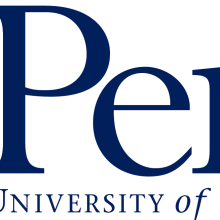New York Times Op-Ed: Why Universities Should Be More Like Monasteries, by Molly Worthen (North Carolina):
Nery Rodriguez just graduated from the University of Pennsylvania with a major in economics, but one of the most significant courses she took there had nothing to do with marginal utility or game theory. When she registered last fall for the seminar known around campus as the monk class, she wasn’t sure what to expect.
“You give up technology, and you can’t talk for a month,” Ms. Rodriguez told me. “That’s all I’d heard. I didn’t know why.” What she found was a course that challenges students to rethink the purpose of education, especially at a time when machine learning is getting way more press than the human kind.
On the first day of class — officially called Living Deliberately[: Monks, Saints, and the Contemplative Life] — Justin McDaniel, a professor of Southeast Asian and religious studies, reviewed the rules. Each week, students would read about a different monastic tradition and adopt some of its practices. Later in the semester, they would observe a one-month vow of silence (except for discussions during Living Deliberately) and fast from technology, handing over their phones to him. …
The class eased into the vow of silence, first restricting speech to 100 words a day. Other rules began on Day 1: no jewelry or makeup in class. Men and women sat separately and wore different “habits”: white shirts for the men, women in black. (Nonbinary and transgender students sat with the gender of their choice.)
Dr. McDaniel discouraged them from sharing personal information; they should get to know one another only through ideas. “He gave us new names, based on our birth time and day, using a Thai birth chart,” Sophie Ouyang, who also took the class and just graduated with a major in nursing, said. “We were practicing living a monastic life. We had to wake up at 5 a.m. and journal every 30 minutes.” If you tried to cruise to a C, you missed the point: “I realized the only way for me to get the most out of this class was to experience it all,” she said. (She did get Dr. McDaniel’s permission to break her vow of silence in order to talk to patients during her clinical rotation.) …
[T]he most visible higher ed trends are moving in the other direction. Rather than ban phones and laptops from class, some professors are brainstorming ways to embrace students’ tech addictions with class Facebook and Instagram accounts, audience response apps — and perhaps even including the friends and relatives whom students text during class as virtual participants in class discussion.
Then there’s that other unwelcome classroom visitor: artificial intelligence. A survey of 1,000 college students by the college-ranking website Intelligent found that 30 percent of respondents had already used ChatGPT to complete a written assignment. Some campus experts on teaching encourage faculty members to stop worrying and love the bot by designing assignments that “help students develop their prompting skills” or “use ChatGPT to generate a first draft,” according to a tip sheet produced by the Center for Teaching and Learning at Washington University in St. Louis.
It’s not at all clear that we want a future dominated by A.I.’s amoral, Cheez Whiz version of human thought. It is abundantly clear that texting, tagging and chatbotting are making students miserable right now. One recent national survey found that 60 percent of American college students reported the symptoms of at least one mental health problem and that 15 percent said they were considering suicide. A recent meta-analysis of 36 studies of college students’ mental health found a significant correlation between longer screen time and higher risk of anxiety and depression. And while social media can sometimes help suffering students connect with peers, research on teenagers and college students suggests that overall, the support of a virtual community cannot compensate for the vortex of gossip, bullying and Instagram posturing that is bound to rot any normal person’s self-esteem.
We need an intervention: maybe not a vow of silence but a bold move to put the screens, the pinging notifications and the creepy humanoid A.I. chatbots in their proper place. They are our tools, not our masters. That doesn’t mean a futile attempt to wall off higher education from the modern world; it does mean selectively returning to the university’s roots in the monastic schools of medieval Europe and rekindling the old-fashioned quest for meaning.
Colleges should offer a radically low-tech first-year program for students who want to apply: a secular monastery within the modern university, with a curated set of courses that ban glowing rectangles of any kind from the classroom. Students could opt to live in dorms that restrict technology, too. We can work individually with students who have accessibility accommodations to find the best low-tech solutions for them (like turning off Wi-Fi, rationing screen time and deleting attention-guzzling apps).
I prophesy that universities that do this will be surprised by how much demand there is. I frequently talk to students who resent the distracting laptops all around them during class. They feel the tug of the “imaginary string attaching me to my phone, where I have to constantly check it,” as Ms. Rodriguez, who took the monk class and Existential Despair, put it. Many, if not most, students want the elusive experience of uninterrupted thought, the kind where a hash of half-baked notions slowly becomes an idea about the world. …
Dr. McDaniel, the religious studies professor at Penn, has a long history with different monastic traditions. He grew up in Philadelphia, educated by Hungarian Catholic monks. After college, he volunteered in Thailand and Laos and lived as a Buddhist monk.
As his teaching career took him from Ohio University to the University of California, Riverside, and then to Penn, he found that no amount of academic reading could help undergraduates truly understand why “people voluntarily take on celibacy, give up drinking and put themselves under authorities they don’t need to,” he told me. So for 20 years, he has helped students try it out — and question some of their assumptions about what it means to find themselves. …
The point of college is to help students become independent humans who can choose the gods they serve and the rules they follow rather than allow someone else to choose for them. The first step is dethroning the small silicon idol in their pocket — and making space for the uncomfortable silence and questions that follow. The experience stuck with Ms. Ouyang, the nursing major. “I didn’t look forward to getting my phone back,” she said.
Penn Today, ‘What is it all for?’:
Through the course Living Deliberately: Monks, Saints, and the Contemplative Life, students find liberation through discipline.
https://taxprof.typepad.com/taxprof_blog/2023/06/ny-times-op-ed-why-universities-and-law-schools-should-be-more-like-monasteries.html




